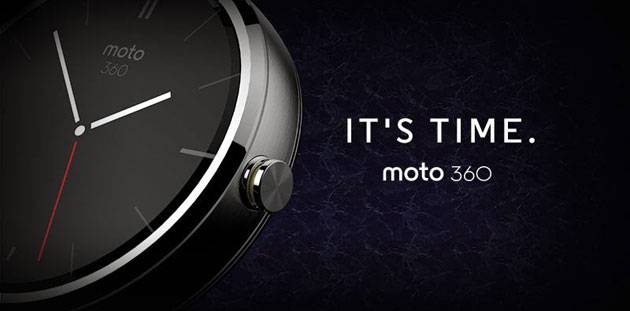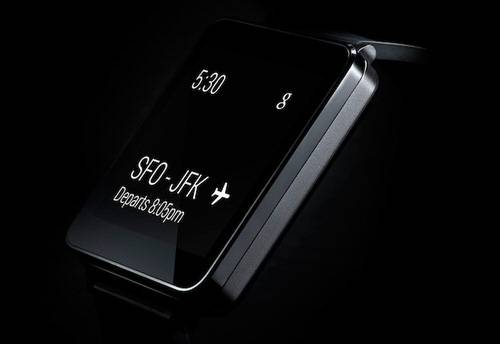
The Moto 360 sounds like a race car. And maybe the spirit of this wearable isn’t all that different, as Motorola and its for-now parent company Google imagine people shooting through life and controlling everything from their wrists. And it’s not alone—LG also announced today that it’s got its own early entrant in the Android smartwatch sweepstakes.
See also: Android Wear: 5 Key Points From Google’s Wearables Strategy
Some people can forgive homely bits of hardware at home or in their pocket, but when it comes to something they put on their bodies, aesthetics become much more important. And LG’s squared-off G Watch and the sophisticated, circular Moto 360 don’t disappoint.
Good thing too, because these are the public’s first introductions to Android Wear, Google’s new master plan to dominate our arms. They need to be sleek and enticing, partly because an ugly, clunky showing could undercut interest before it really begins. (Look no further than Samsung’s original Galaxy Gear.) Also, looks are about all we have to go on at the moment, since neither Motorola nor LG have released much in the way of technical specifications.
See also: Steel Yourself: A New Pebble Smartwatch Is On Its Way
Though no smartwatch has yet been a breakout hit, the devices have been steadily gathering buzz thanks to products like Pebble, Galaxy Gear and Qualcomm Toq—not to mention persistent rumors of the still-mythical Apple iWatch.
It’s not yet clear how the Moto 360’s hardware measures up, as there are few details yet. What we know is that at least one of the digital face resembles a round analog watch with a design that, to me, at least, smacks of an automobile gauge. (Hence the racing car metaphor.) But if that’s not your cup of tea, take heart: Different watch faces appear to be available, and when the device launches this summer, it will come in a range of styles and bands. So apparently there won’t be any iffy hardware illogically embedded in the watchbands, the way there was in the original Galaxy Gear.
LG’s G Watch, also due out later this year, looks more like a Pebble Steel, though a bit taller and with slightly rounded corners.
Both the LG and the Moto watch will alerts the wearer of notifications, presumably via gestures, since Google mentioned a “twist of the wrist.” Google Now also powers speech commands, with the user simply saying “OK Google” to check weather forecasts or flight info, or conjure music playlists. It can also cast shows or music to your TV, or help you stay on track with your fitness goals.

But that’s just the beginning. More features will undoubtedly be on the way, as would-be Android Wear developers get their creativity going.
In technology, people talk about software ecosystems all the time. Samsung only recently opened its software development kit for its next-generation, Tizen-based Gear watches. Pebble’s secret sauce has been the cultivation of its Appstore. And if that was all Google wanted—an ecosystem of apps for its smartwatch—there’s no question that Android would be a decent fit. The platform already has an existing world of Android apps that could be repurposed to watches.
But if that’s all there is, we’d be right to be disappointed. Dominating the smartwatch market likely isn’t Google’s main goal. Wearable computing could unlock access to the whole home, and a whole lot beyond that.
Pebble has made some interesting strides in home automation, partnering with connected home company iControl and distributing Verizon’s Pebble app for the company’s Intelligent Home customers.
Now imagine a company with the deep resources of Google entering that arena. Its Chromecast TV streaming gadget has dominated Amazon’s sales chart, and the Nest smart thermostat it recently acquired has been a hit. In light of that, it makes sense to extend Android to wearables, as it positions the wrist as the command center for our entire lives.
That has always been the promise of smartwatches. Perhaps it takes a company like Google to accelerate that future. Certainly now would be an optimal time to strike. Long-time rival Apple has supposedly been working on its own smartwatch. If that’s true, there’s no telling how that might change the landscape.
If the iOS vs Android battle is poised to leap out of our pockets, land on our wrists and spread to our whole house, that would make the choice of platform a higher stakes game than ever.
Images courtesy of respective companies
Edited for clarity

















